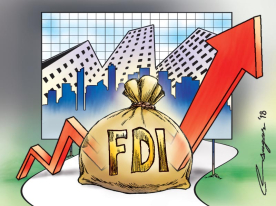The government has reaffirmed its commitment to ensuring the security of European Union investments through the Indonesia-European Union Comprehensive Economic Partnership Agreement (IEU-CEPA), a landmark deal set to enhance trade and economic cooperation between both regions.
Director General of International Trade Negotiations at the Ministry of Trade, Djatmiko B. Witjaksono, said that IEU-CEPA guarantees market access for both parties, including provisions for investment facilitation, cooperation, and protection.
“The EU has shown strong interest and commitment to investing in several key sectors, including renewable energy, electric vehicles, information and communication technology, and pharmaceuticals,” Djatmiko told a press conference in Jakarta on Monday, August 4, 2025.
According to the Ministry of Investment and Downstreaming, total EU investment in Indonesia reached approximately US$1.37 billion (Rp22.5 trillion) in 2024, spread across more than 14,200 projects. Most of these investments flowed into the manufacturing, chemical, logistics, and green technology sectors.
Among EU member states, the Netherlands led with US$841.2 million across 2,571 projects, followed by the United Kingdom with US$133.9 million, and Switzerland with US$127.1 million.
Djatmiko also noted that IEU-CEPA would open Indonesia’s market to EU imports. However, he emphasized that these imports are strategically targeted to improve domestic manufacturing performance.
He cited that high-tech machinery from Germany and France − not produced locally − will be imported to enhance the efficiency of export-oriented factories in Indonesia.
“The imported products from Europe are complementary and necessary. The machines will support export-focused industries,” he said.
Additionally, Djatmiko highlighted an expected rise in imports of high-tech medical equipment from Europe due to IEU-CEPA, which he argued would benefit the local healthcare sector.
“Many advanced medical products from Europe are essential for improving healthcare services in Indonesia. We’re facilitating this to make healthcare more competitive,” he added.
Meanwhile, Minister of Investment and Downstreaming, Rosan Roeslani, confirmed that the IEU-CEPA agreement is expected to be signed in September 2025, followed by swift ratification.
He projected that once the agreement is in effect, Indonesia’s trade value with the EU could double from US$30 billion to around US$60 billion, marking a significant leap in bilateral economic relations.
